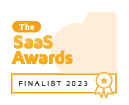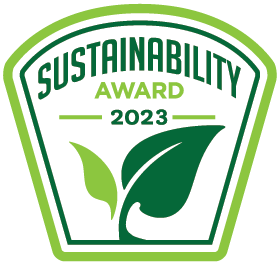VL experts break down the recently announced sustainability reporting standards from the International Sustainability Standards Board (ISSB)
The first-ever set of standards recently unveiled by the International Sustainability Standards Board (ISSB) are a big step forward for global ESG and sustainability reporting standards. These new standards, S1 and S2, will have long-standing implications for sustainability regulation, data collection and reporting. Visual Lease has helped clients adapt to new regulations and track complicated metrics for nearly three decades, and recently launched the VL ESG Steward in anticipation of ESG reporting becoming the next great challenge for finance and real estate teams.
Today, we’re answered the top questions our ESG clients have about how to best prepare for these new regulations.
What are the S1 and S2 standards announced by the ISSB?
The S1 and S2 standards are the ISSB’s new guidelines for sustainability disclosure. The S1 standard (titled “General Requirements for Disclosure of Sustainability-related Financial Information) aims to identify sustainability risks and opportunities, then assess their impact on the value of the enterprise. The S1 standard considers all sustainability risks and opportunities.
The S2 standard is focused specifically on climate-related issues, including the disclosure of greenhouse gas emissions along with other industry-specific topics.
When are these standards expected to go into effect?
The ISSB published the S1 and S2 standards in late June. The standards will be effective with corporate fiscal years starting January 1, 2024.
What do these standards mean for U.S. organizations?
Though the ISSB develops sustainability disclosure standards, it does not have regulatory authority. This means the implication on U.S. organizations will depend on the discretion of authorities in different jurisdictions.
U.S. organizations may be required to report under ISSB guidelines directly, under guidelines like those adopted for the European Union by the European Financial Reporting Advisory Group (EFRAG).
Although no nation has yet adopted the ISSB standards, many have indicated their intent to do so. It’s reasonable to assume that if a U.S. organization must report accounting under the International Financial Reporting Standards (IFRS), it is likely ISSB reporting will also require ESG accounting.
What are some of the anticipated benefits of these standards to organizations? What are the risks of not meeting them?
Apart from environmental benefits, maintaining a positive relationship with your customers is perhaps the most significant benefit, particularly in the B2B world. Organizations that must report for regulatory reasons require this information and are likely to cut ties with companies that don’t meet their ESG goals.
The same goes for direct-to-consumer businesses. A recent statistic from PwC noted that 76% of consumers say they will stop buying from companies that treat the environment, employees, or the community in which they operate poorly.
Access to capital can also suffer from poor or non-existent ESG reporting. Moody’s Investor Services reports one of five organizations suffered a credit rating setback after an assessment of their adherence to ESG best practices.
Robust ESG reporting can even make an organization more efficient, eliminating or reducing unnecessary travel, and reducing excessive waste — there are countless potential benefits.
What data should organizations start tracking to prepare for this new level of reporting?
The ISSB understands the enormous scope of sustainability reporting. To address this, in April 2023, the board decided to introduce a transition relief in IFRS S1 that allows an entity to report on only climate-related risks and opportunities. These can be broken down into three pillars: energy consumption and greenhouse gas emissions, water usage, waste generation, and biodiversity.
How else can organizations set themselves up for ESG reporting success?
At Visual Lease, we define ESG reporting success as generating reports that clearly present understandable and verifiable metrics.
We recommend three steps to make this possible. First, establish a task force responsible for handling everything ESG requires. Next, you’ll want to establish your inventory. ISSB is prioritizing energy and greenhouse gas emissions, but these are also the most complex to track. Any fuel expenditure should be tracked. Gas-fired HVAC and water heaters, diesel-powered emergency generators and propane-powered forklifts are all sources of energy and emissions. Lastly, establish controls around the data flow and ensure an audit trail is available for the necessary attestation.
Keep in mind that the goal is not to grasp as much data as possible. We recommend capturing what is consistently obtainable with controls to ensure the data is accurate. This will serve as a baseline to complete additional ESG requirements as they are phased in.
Where should organizations look for the latest news on ESG regulations?
Going directly to the source for information is the best way to get news on ESG regulations, but the reports from the ISSB, SEC, and EFRAG can be very difficult to follow and understand. Regulators are required to speak and write in very precise, technical language, which is often too complex for non-experts to follow. Even non-regulatory bodies often use very technical language or push agendas to promote certain outcomes.
At Visual Lease, we believe a mix of advisory firms is the best way to stay on top of the latest ESG developments. Given the ISSB requirements, all of the large accounting firms are developing a strong ESG advisory practice. Most are supporting regular webcasts, publications, and continuing education on the topic. These resources do an excellent job of aggregating the technical information and presenting it in a manner that is easy to understand.























